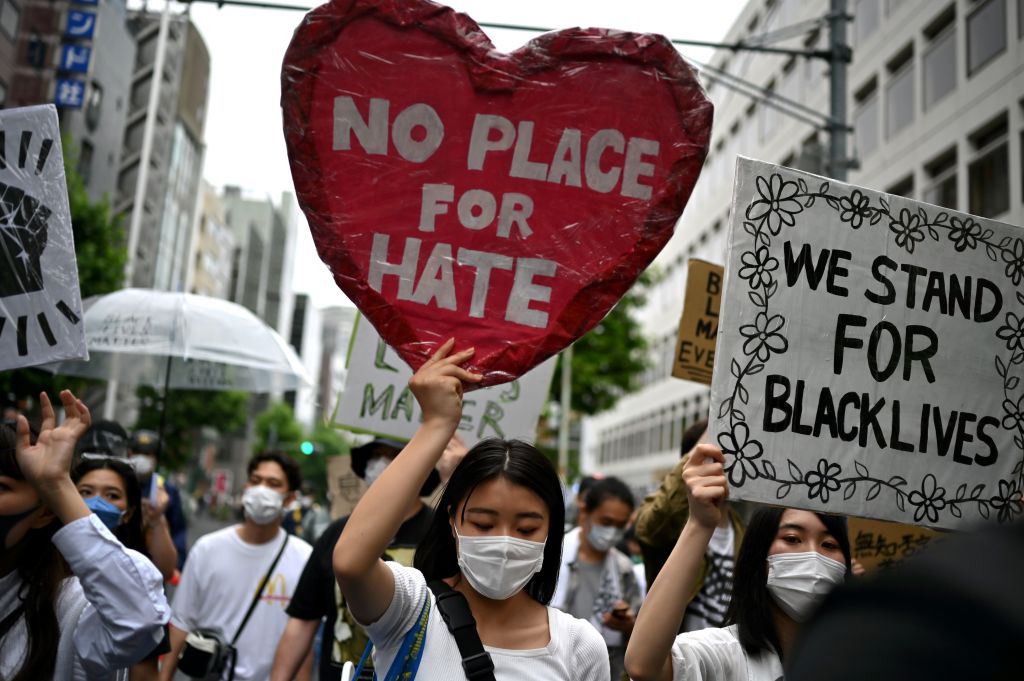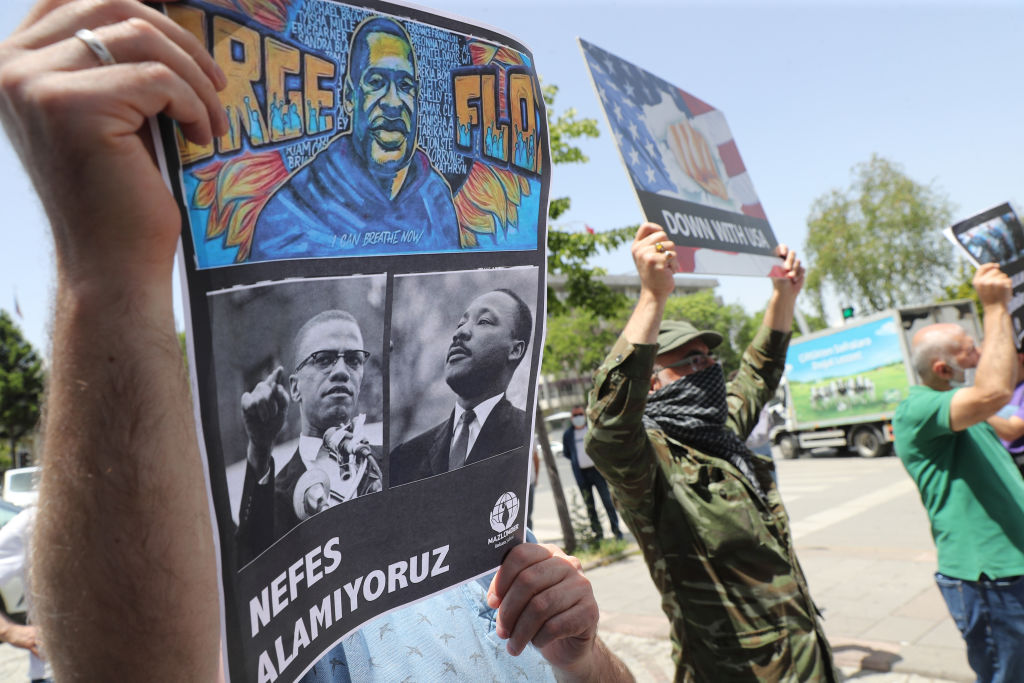
Juneteenth is a celebration of the emancipation of enslaved Black Americans. Yet even as the newest U.S. holiday marks a uniquely American moment in Black history, the events of the last few years—from the international growth of the Black Lives Matter movement to the disproportionate impact of the COVID-19 pandemic—have been a reminder that the Black freedom struggle is far from won.
But perhaps the fight at home can be bolstered by making common cause with non-white people around the world. There is a great opportunity for allyship that too many Black American leaders are letting pass by. American exceptionalism is rooted in white supremacy. By not challenging the geopolitical objectives of white America, is Black America complicit? Few, if any, Black leaders have asked the question, let alone questioned the country’s foreign policy.
The issue Black America faces is reflected in the following statement: “When you invade a foreign nation, that is a war crime.” These were the words of former Secretary of State Condoleezza Rice, as she was asked about Russia’s invasion of Ukraine during a Feb. 27 interview with Fox News.
Read More: How to Honor Juneteenth, According to Black Activists
Rice is known around the world as one of the architects of the invasion of Iraq—a war crime by her own standards. As a Black American, she represents the contradiction that some Black Americans find themselves facing today: the quest for equality with white Americans, their domestic oppressors, is not mutually exclusive with supporting white America as it seeks to maintain its hegemonic influence around the world.
What about allying with communities around the world that have also suffered because of white America? Compared to the days when Malcolm X was a leader in anti-imperialist thought, or musician Gil Scott-Heron sang about “Third World revolution,” the concerns of Black America today are largely domestic, and often lack a sense of solidarity with the fights of others. Even at home, white America has been able to create a narrative of animosity between Black and Asian Americans. There are well documented tensions between Black Americans and Latinos. These are not the conditions under which white supremacy can be challenged, whether in the U.S. or elsewhere.

Black America’s global impact
Having been involved in the liberation struggle in Southern Africa during the apartheid era, I watched the work of 50 years’ worth of Black American leaders—including Malcolm X, Stokely Carmichael, Angela Davis, Bobby Seale, James Baldwin, and of course Martin Luther King Jr.—with great interest.
In particular, I admired how Black Americans situated their fight for equality within the global context and the solidarity they had with oppressed people across the world. For example, Muhammad Ali connected his personal experience of racism to the rejection of the U.S. war in Vietnam. “I ain’t got no quarrel with them Viet Cong,” he famously said. “They never called me n—-r, they never lynched me, they didn’t put no dogs on me, they didn’t rob me of my nationality, rape and kill my mother and father.”
Martin Luther King also rejected America’s militaristic foreign policy, and understood its economic link, presciently identifying in his Beyond Vietnam speech how “deadly Western arrogance” has put Black Americans “on the side of the wealthy, and the secure, while we create a hell for the poor.” He added that America made “peaceful revolution impossible by refusing to give up the privileges and the pleasures that come from the immense profits of overseas investments.”
In a virtual address I made in February to the Future of Black America conference, I remarked on how these sentiments have rarely been expressed in the Black American activist movement in recent years. The movement’s fight exists almost entirely within the U.S. and does not often acknowledge that white America is not only a domestic oppressor but the global hegemonic power and purveyor of white privilege and supremacy across the world.
Read More: The Fight Against White Supremacy Isn’t Just an American One
Of course, this is not to deny that much of Black America’s fight is for basic rights, like access to education and non-discriminatory treatment from law enforcement and judiciary systems. But in pursuing equality with those at the top of the global food chain, are Black Americans also willing to acknowledge, as King did, that this comes with the weight of injustices committed against others around the world? Is #BlackExcellence celebrated in American corporations, government, and the military, because—under the camouflage of unity and anti-racism—it allows Black America’s best and brightest to contribute to white America’s global dominance?
As business leaders, Black Americans may be helping to perpetuate a system of dominance set up by white America that takes advantage of global economic and geopolitical structures, often at the expense of poorer nations. There is increasing demand for Black CEOs in the U.S., but are they really likely to change the systems of inequality these corporations are built on? Even President Obama was unable to make that fundamental difference for Black Americans.
As political leaders, Black Americans may have to condone oppressive foreign policy that results in immense suffering for white America’s enemies. Twenty years of U.S. occupation in Afghanistan resulted in nearly 150,000 casualties. Where were the Black leaders willing to take the same stance on this carnage as Muhammad Ali or Martin Luther King did on Vietnam, to tie that “White man’s war” to “the Black man’s fight”?
Black Americans are in a double-bind. As they fight to break free from the confines of systemic racism they must also resist the allure of privilege associated with the country they call home. Yet they have a historic opportunity to show solidarity with the rest of the non-white world instead of with white America’s imperial ambitions. As Juneteenth comes around once more, perhaps Black Americans can celebrate their emancipation by connecting their struggle to that of others overseas, educating the next generation in the fight for global equity.
More Must-Reads from TIME
- Donald Trump Is TIME's 2024 Person of the Year
- Why We Chose Trump as Person of the Year
- Is Intermittent Fasting Good or Bad for You?
- The 100 Must-Read Books of 2024
- The 20 Best Christmas TV Episodes
- Column: If Optimism Feels Ridiculous Now, Try Hope
- The Future of Climate Action Is Trade Policy
- Merle Bombardieri Is Helping People Make the Baby Decision
Contact us at letters@time.com